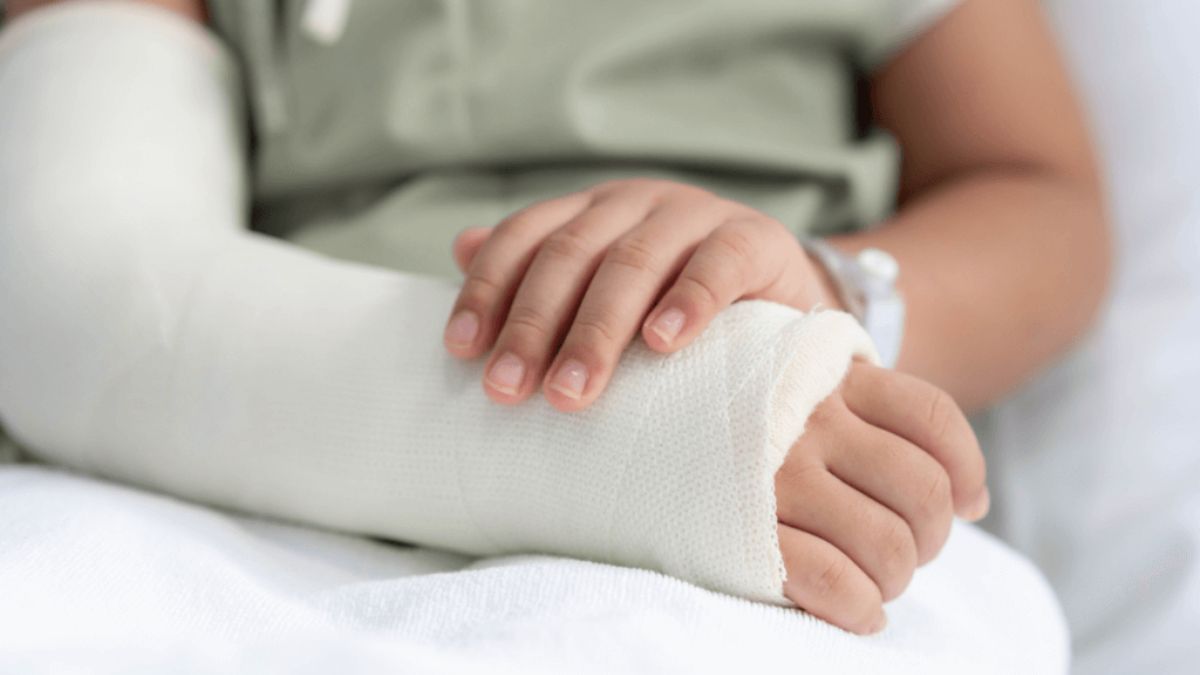HEALTH
How Stress and Anxiety Affect Erectile Dysfunction

The Connection Between Stress, Anxiety, and ED
Erectile dysfunction (ED) is a widespread issue that significantly impacts the quality of life for many men, intertwining complexly with psychological factors such as stress and anxiety. These mental health issues are not merely emotional burdens but key components that interfere with erectile function, often creating a vicious cycle that exacerbates the condition. Many men find themselves trapped by concerns of performance, which only adds layers of anxiety. In such cases, turning to a professional urologist in Sacramento for ED can provide a targeted approach that addresses both the psychological and physiological aspects of ED. Doing so makes it possible to break free from this cycle and restore a sense of normalcy and well-being.
The complex interplay between stress, anxiety, and erectile dysfunction is rooted in the body’s natural response mechanisms. When faced with stress, the body activates its fight or flight response, releasing stress hormones such as adrenaline and cortisol. These hormones prioritize survival mechanisms over functions deemed non-essential, such as sexual performance. This hormonal release can directly interfere with the body’s ability to maintain an erection by limiting blood flow and altering normal physiological processes. Addressing these psychological barriers is essential to achieving overall sexual health.
Understanding the Physiological Impact of Stress on ED
Stress affects erectile function through a cascade of physiological reactions. One important factor is the rise in stress hormones like cortisol and adrenaline, which can narrow blood vessels and create vasoconstriction, which limits the flow of blood required for an erection. Under chronic stress, the body’s ability to preserve energy for critical bodily functions changes, leading to the suppression of functions like sexual performance.
The Role of Neurotransmitters
Neurotransmitters, the brain’s chemical messengers, play a fundamental role in regulating mood and inducing physiological responses, including sexual arousal. Stress disrupts the balance of neurotransmitters like serotonin and dopamine, potentially reducing libido and making erections more challenging to achieve. Chronic stress can result in the long-term dysfunction of these neurotransmitters, contributing to ongoing issues with sexual performance.
Impact on Blood Flow
Central to the occurrence of an erection is adequate blood flow to the penile area. Stress, however, can lead to increased blood pressure and heart rate, negatively affecting overall circulation. Chronic stress can harm blood vessels over time, preventing the blood flow required to get and keep an erection. This vascular damage is a significant component in the development of ED in individuals experiencing ongoing stress.
Anxiety and Erectile Dysfunction
Anxiety further complicates erectile dysfunction by introducing an emotional barrier to sexual performance, often creating a self-fulfilling prophecy of failure and disappointment. The mental cycle of worry regarding sexual inadequacy can prevent the onset of sexual arousal, further exacerbating erectile difficulties.
Performance Anxiety
Performance anxiety stands as one of the most prevalent psychological hurdles for men dealing with ED. It creates a feedback loop where fear of inadequacy leads to inhibited sexual arousal, resulting in failed attempts to maintain an erection. When anxiety about sexual performance is present, it triggers the body’s stress responses, thereby suppressing the ability to achieve an erection. Breaking this cycle of performance anxiety requires a proactive approach towards mental and emotional health.
Self-Confidence and Self-Esteem
Erectile dysfunction can severely impact a man’s self-confidence and self-esteem, painting the portrait of decreased masculinity and worth. As self-esteem diminishes, anxiety levels can rise, leading to further impairment in sexual performance. This negative emotional burden stresses the importance of open communication with a partner, which can mitigate the blow to self-esteem and reinforce a supportive foundation, crucial for managing erectile health holistically.
Strategies for Managing Stress and Anxiety
Addressing stress and anxiety requires a well-rounded approach that includes both psychological strategies and lifestyle modifications. Integrating these strategies can provide relief from anxiety-related ED symptoms and promote overall mental well-being.
Mindfulness and Relaxation Techniques
Mindfulness and relaxation techniques, such as meditation, deep breathing exercises, and yoga, reduce stress levels and enhance focus. These practices promote a state of relaxation by soothing the nervous system, allowing better management of anxiety-related ED symptoms. Incorporating these techniques into a daily routine can provide long-term benefits for mental health and erectile function.
Physical Activity
Frequent exercise is an effective way to enhance sexual health as well as general wellness. Exercise enhances cardiovascular fitness by improving blood flow and releases endorphins—chemicals that naturally elevate mood and reduce stress. Consistent physical activity acts as a natural mechanism to alleviate anxiety and is beneficial for both mental health and erectile function.
Therapy and Counseling
Therapy or counseling, particularly cognitive-behavioral therapy (CBT), offers essential support for managing anxiety and stress. CBT specifically addresses the negative thought patterns that contribute to ED, fostering healthier mental habits and perspectives. Counseling sessions provide a judgment-free space to explore deep-seated fears and anxieties, leading to productive resolutions. Engaging with mental health professionals through therapy can provide significant relief and is a crucial aspect of comprehensive ED management.
Lifestyle Modifications for Improved Sexual Function
Lifestyle changes play a pivotal role in influencing sexual performance and alleviating ED symptoms rooted in stress and anxiety.
Healthy Diet
Promoting improved mental and physical health requires eating a balanced diet full of fruits, vegetables, healthy grains, and lean proteins. Nutrient-dense foods support cardiovascular health, which is crucial for sustaining erectile function. Diets high in antioxidants and nutrients can indirectly aid in managing anxiety, further benefiting sexual health.
Sleep and Rest
Quality sleep is indispensable for maintaining overall mental health and physical recovery. Ensuring adequate sleep—typically between 7 and 8 hours per night—helps regulate hormones and significantly reduces stress levels. A regular sleep schedule can improve cognitive function and emotional balance, positively affecting sexual health.
Avoiding Substances
Managing ED effectively can also involve minimizing or eliminating the use of substances such as alcohol, caffeine, and nicotine. These substances can interfere with sleep, elevate stress, and increase blood pressure, further exacerbating ED symptoms. By moderating or avoiding these substances, individuals may experience enhanced mental clarity and improved vascular health, essential for healthy erectile function.
The Importance of Professional Help
Professional intervention remains vital in managing ED and its psychological triggers. Engaging with psychologists and urologists provides comprehensive care that addresses both mental and physical facets of ED, constructing a tailored treatment plan that incorporates medical, behavioral, and lifestyle strategies to achieve lasting improvements in erectile health.
Recognizing the role of stress and anxiety in erectile dysfunction empowers individuals to take meaningful steps in managing their symptoms. By combining psychological strategies, healthy lifestyle modifications, and professional support, individuals can significantly reduce the adverse effects stress and anxiety have on erectile function and achieve a healthier, more satisfying sexual life.
HEALTH
Essential Considerations After a Personal Injury Incident

What to Do Immediately After an Incident
A personal injury incident can strike unexpectedly, leaving you feeling disoriented and vulnerable. In these crucial moments, your priority should be ensuring everyone’s safety, including yours. Begin by assessing the environment for hazards such as traffic, unstable structures, or exposed electrical elements. If necessary, quickly move to a safe location or, if incapacitated, signal for help.
Once safety has been established, it is essential to maintain a sense of calm. While this is challenging, keeping a clear mindset enables sound decisions. You may already consider the potential legal ramifications and wonder about personal injury law during this time. This understanding is crucial as it informs how you handle the initial stages after an injury.
Understanding Your Rights
Understanding your rights following a personal injury can be a source of empowerment. Individuals affected by such incidents frequently encounter many decisions, ranging from medical care to possible legal recourse. Typically, victims have the right to seek compensation for their injuries, which may encompass physical damage, emotional suffering, and financial setbacks, including lost wages or medical expenses. Engaging a personal injury lawyer can facilitate obtaining the compensation you are entitled to, as they can assist in navigating the legal complexities on your behalf. Having a well-informed strategy can significantly impact the outcome of any legal matter. To enhance your understanding, explore comprehensive resources that explain your legal rights as an injury victim.
Gathering Necessary Evidence
The strength of your compensation claim hinges significantly on the evidence gathered at the scene. Documenting the scene might seem challenging in the chaotic aftermath of an accident, but it is a vital step. Take clear photographs from multiple angles, capturing details like road conditions or visible injuries.
Should witnesses be available, collect their contact details and courteously request their event description. Written statements or voice recordings are invaluable. Secure any video footage from nearby cameras, such as traffic or security cameras, which could provide an unbiased account of the incident.
Seeking Medical Attention
Medical attention should be sought immediately after ensuring safety, even if injuries appear to be minor. Prompt medical evaluations are necessary for your health and serve as critical evidence. Minor aches or bruises indicate underlying injuries that could have been left unchecked.
A detailed medical report is an official record of your injuries and is often crucial when filing compensation claims. For instance, understanding the importance of medical procedures like X-rays can better illustrate how injuries are documented and assessed. Skipping this step can lead to complications in your recovery and legal proceedings.
Reporting the Incident
Once immediate concerns are managed, you should report the incident to the authorities. This includes contacting the police to file an official report. This report creates an official and unbiased account of what transpired, which lawyers and insurance companies often examine closely.
Be honest and concise in your account to the authorities. Provide them with the collected evidence, but refrain from speculating about fault or liability, as emotions and stress can colour your perspective.
Consulting a Professional
Personal injury cases often present complexities and involve nuanced details requiring expert guidance. Engaging a personal injury attorney can offer valuable clarity and assistance. A lawyer represents your interests and expertlymanoeuvress through the intricacies of the legal system on your behalf, guaranteeing that you obtain the compensation to which you are entitled.
Prepare for these consultations by gathering all relevant documents. Questions to discuss include your case’s strengths and the lawyer’s experience with similar claims. This relationship will be instrumental, so choose a lawyer whose communication style you find agreeable and who clearly outlines their strategy and expectations.
Navigating Insurance Claims
Filing an insurance claim demands patience and precision. Write down all correspondence with the insurance company and keep detailed records of every exchange. Respond promptly to communications and provide all requested documentation, including medical reports and evidence collected at the scene.
Insurance companies aim to minimize payouts, so be prepared to advocate for yourself firmly. Proactively engaging in the process with a straightforward narrative supported by evidence builds a compelling case for a fair settlement. Avoid rushing the process; thoroughness now can prevent complications later.
Staying Informed and Educated
Finally, education is an ongoing process that bolsters your readiness for personal injury incidents. Continuously familiarize yourself with personal injury law as it evolves with new precedents and legislative changes. This knowledge assists you in the immediate aftermath of an incident and prepares you for potential future scenarios.
Explore readings from reputable legal sources, attend workshops, or consult experts to enhance your understanding. Being well-informed isn’t just about being prepared—it’s about staying empowered in all legal and personal protection aspects.
HEALTH
Factors That Affect Breast Implant Prices in Baton Rouge

Choosing to undergo breast augmentation is a significant decision, and understanding the cost is essential for making an informed choice. The price of breast implants can differ depending on factors influencing the overall cost. For those considering this procedure, it’s essential to understand what affects the price.
In Baton Rouge, breast implant costs vary greatly based on multiple factors. From the surgeon’s experience to the type of implants, every element contributes to the final price of the procedure. When considering a procedure, it’s essential to research about the breast implants Baton Rouge price to ensure it aligns with your budget and expectations.
Surgeon’s Experience and Reputation
One of the most significant factors determining the price of breast implants is the surgeon’s experience and reputation. Due to their expertise, experienced, board-certified surgeons specializing in breast augmentation often charge more. They provide a higher level of care, and their track record of successful surgeries justifies the cost. While opting for a more affordable surgeon might seem appealing, the quality and safety of the surgery should be the priority. An experienced surgeon in Baton Rouge ensures the best results, making the investment worthwhile in the long run.
Type of Implants Chosen
The type of implants chosen by the patient significantly impacts the overall cost. Saline implants are typically more affordable than silicone implants, which are more expensive due to their construction and natural feel. Patients can also choose between textured or smooth implants, which may cost differently. The decision on implant type depends on factors like desired aesthetic results and personal budget. A consultation with a qualified surgeon in Baton Rouge will help patients decide which implant best suits their body and goals while also considering the cost.
Location and Market Factors
Local market conditions can also influence the cost of breast implants in Baton Rouge. Prices can vary depending on the demand for cosmetic surgery in the area and the number of qualified surgeons available. In areas with higher demand for breast augmentation, the cost may increase. The local cost of living and the reputation of specific clinics can also affect pricing. Patients should research local clinics and compare prices while keeping in mind that the quality of care and expertise should not be compromised for a lower price.
Facility and Anesthesia Fees
The surgical facility and anesthesia fees are important factors in the overall price. The location of the surgery center, whether it’s an outpatient clinic or a hospital, can affect the cost. Some clinics charge higher fees for their facilities, which may include more advanced equipment and higher standards of care. Additionally, anesthesia fees vary depending on whether general or local anesthesia is required. General anesthesia tends to be more expensive than local anesthesia. Patients should ask for a detailed breakdown of all these costs during the consultation to ensure they fully understand the price.
Additional Considerations When Seeking Breast Implants
When considering breast augmentation, finding a provider that offers personalized care throughout the entire process is essential. Many clinics provide detailed consultations where patients can discuss their goals, review different implant options, and receive advice tailored to their needs. These consultations help patients understand the costs and the level of care they can expect. By choosing a clinic in Baton Rouge that emphasizes patient satisfaction and safety, individuals can ensure a smoother and more successful experience.
Breast implants Baton Rouge price can vary based on factors such as the surgeon’s experience, the type of implants selected, the complexity of the procedure, and associated facility and anesthesia fees. Understanding these elements helps patients plan financially and choose the correct option. By consulting with a reputable surgeon, prospective patients can ensure they receive the best value for their investment while achieving their desired results.
HEALTH
Stress and Ovarian Cysts: Can Anxiety Make Your Symptoms Worse?

When dealing with ovarian cysts, the physical symptoms—like pelvic pain, bloating, and irregular periods—can be overwhelming enough on their own. However, for many women, the emotional and psychological aspects of living with ovarian cysts are just as significant. One factor that often exacerbates these symptoms is stress.
But how exactly does stress affect ovarian cysts, and can anxiety make your symptoms worse? In this blog, we’ll explore the intricate relationship between stress and ovarian cysts, how stress might impact the severity of your ovarian cyst symptoms, and what you can do to manage both the physical and emotional aspects of dealing with ovarian cysts.
What Are Ovarian Cysts?
Before diving into how stress and anxiety can affect ovarian cysts, it’s important to understand what they are. Ovarian cysts are fluid-filled sacs that develop on or inside the ovaries. They are relatively common, especially in women of reproductive age, and most ovarian cysts are benign (non-cancerous). Many women experience no symptoms at all, while others may have pain or discomfort.
There are several types of ovarian cysts, with the most common being functional cysts, which occur during the menstrual cycle. These cysts usually resolve on their own without treatment. However, some women may experience more complex cysts that can cause symptoms like:
- Pelvic or abdominal pain
- Bloating
- Irregular or heavy periods
- Pain during sex
- Nausea or vomiting
While most cysts are harmless and go away on their own, some can grow, cause complications, or affect fertility. For women experiencing persistent symptoms, stress can be both a contributing factor and a result of dealing with a chronic condition like ovarian cysts.
The Link Between Stress and Ovarian Cysts
Stress is an inevitable part of life, but when it becomes chronic, it can have a profound impact on your physical health, including your reproductive system. Research shows that stress affects the body in many ways, from disrupting hormone levels to causing inflammation, both of which can influence the formation or worsening of ovarian cysts.
Here’s how stress might contribute to or worsen ovarian cyst symptoms:
Hormonal Imbalance
Stress triggers the release of the “stress hormone” cortisol. Cortisol is part of the body’s natural fight-or-flight response, which is essential for managing acute stress. However, prolonged stress can lead to consistently high cortisol levels, which may disrupt the delicate balance of other hormones involved in the menstrual cycle, such as estrogen and progesterone.
An imbalance in these hormones can have a direct effect on ovarian function. For example, high cortisol levels may prevent the proper release of eggs from the ovaries, a process known as ovulation. Without proper ovulation, the ovarian follicle can become a cyst. Additionally, hormonal imbalances can cause irregular periods, which may make cysts more likely to form or grow.
Increased Inflammation
Chronic stress also triggers the body’s inflammatory response. Inflammation can interfere with normal bodily functions, including those of the reproductive system. Inflammation may cause the ovaries to become more susceptible to cyst formation or exacerbate the symptoms of existing cysts, leading to increased pain, bloating, or discomfort.
In some cases, inflammation may lead to more serious complications, such as the rupture of a cyst, which can result in severe pain and, in rare cases, infection.
Muscle Tension and Pain Perception
When stressed or anxious, the body tends to tense up, particularly around the shoulders, neck, and abdominal area. This muscle tension can increase pelvic discomfort in women with ovarian cysts. The sensation of pain or pressure caused by a cyst may feel more intense when your muscles are tight and stressed.
In addition, stress can alter your perception of pain, making you more sensitive to discomfort. This means that the pain from a small ovarian cyst might feel much worse when you’re under stress or anxious. This can create a cycle where anxiety about the cyst causes more stress, which in turn makes the pain feel more unbearable.
Gut and Digestive Issues
Stress can also have a significant impact on the digestive system. Anxiety and stress can lead to issues like bloating, constipation, and stomach cramps—symptoms that overlap with the symptoms of ovarian cysts. When you’re already dealing with abdominal discomfort due to a cyst, additional digestive problems caused by stress can make everything feel worse.
Furthermore, chronic stress can lead to conditions like irritable bowel syndrome (IBS), which may increase bloating and digestive distress, further exacerbating the discomfort associated with ovarian cysts.
Reduced Immune Function
Stress has a detrimental effect on the immune system. Prolonged stress can weaken immune function, making the body less able to deal with infections or inflammation. This can affect your ovaries, increasing the likelihood of complications such as cyst rupture or infection. Additionally, a weakened immune system may delay the healing of cysts or prolong the symptoms associated with them.
How Anxiety Can Impact Ovarian Cyst Symptoms
Anxiety, which often accompanies stress, can also play a major role in exacerbating ovarian cyst symptoms. Anxiety causes the body to stay in a heightened state of alert, activating the fight-or-flight response even when there is no immediate danger. This prolonged state of arousal can lead to physical changes in the body that make ovarian cyst symptoms worse.
Some specific ways anxiety can affect ovarian cysts include:
- Hypervigilance about symptoms: When you’re anxious, you may become hyper-aware of any sensations in your body. This can cause you to focus excessively on your ovarian cyst symptoms, making them seem worse than they are. This heightened awareness can also lead to unnecessary worry and stress.
- Sleep disturbances: Anxiety can interfere with your ability to sleep, leading to fatigue and an overall decrease in your ability to cope with physical symptoms. Poor sleep can also increase your sensitivity to pain, making the discomfort from ovarian cysts more difficult to manage.
- Behavioral effects: Anxiety can lead to unhealthy coping mechanisms, such as overeating or drinking alcohol, which can worsen inflammation and disrupt hormone balance, potentially making ovarian cysts more problematic.
Managing Stress and Anxiety to Relieve Ovarian Cyst Symptoms
Given the connection between stress, anxiety, and ovarian cysts, managing your emotional well-being is crucial for alleviating symptoms. Here are several strategies you can incorporate into your daily routine to help reduce stress and anxiety:
Practice Mindfulness and Meditation
Mindfulness practices, such as meditation and deep breathing exercises, can help calm your nervous system, reduce cortisol levels, and ease physical tension. Even just 10–15 minutes of mindfulness a day can help regulate your stress levels and improve your overall sense of well-being.
Exercise Regularly
Exercise is a powerful tool for stress reduction. Physical activity helps release endorphins, which are natural mood boosters, and can also help improve sleep quality and reduce anxiety. Aim for activities you enjoy, such as walking, swimming, or yoga, which can also alleviate muscle tension and promote relaxation.
Manage Your Diet
A balanced diet can play a role in reducing stress and supporting your reproductive health. Foods rich in antioxidants, omega-3 fatty acids, and fiber can help reduce inflammation and support hormonal balance. Limiting caffeine and alcohol intake can also help stabilize your mood and energy levels.
Therapy and Counseling
If anxiety is affecting your daily life, talking to a therapist can be beneficial. Cognitive-behavioral therapy (CBT) is particularly effective for anxiety and stress management. A mental health professional can help you develop coping strategies and reduce anxiety related to your cyst symptoms.
Stay Connected with Support Networks
Talking to friends, family, or others who are going through similar experiences can provide emotional relief. Support groups, whether in-person or online, can be a great way to share your concerns, receive advice, and feel understood.
Seek Medical Advice
If you’re experiencing significant pain or discomfort from ovarian cysts, it’s essential to speak with a healthcare provider. They can provide treatment options, including medication for pain management or hormonal regulation. In some cases, they may recommend surgery to remove the cyst, especially if it is causing severe symptoms.
Conclusion
Stress and anxiety can significantly impact the severity of ovarian cyst symptoms, from hormonal imbalances to increased pain and digestive issues. While it may not be possible to completely eliminate stress from your life, managing it effectively can help reduce the physical and emotional burden of dealing with ovarian cysts. By incorporating stress-reduction techniques like exercise, mindfulness, and proper medical care, you can help improve your overall health and minimize the impact of ovarian cysts on your life.
If you’re struggling with symptoms of ovarian cysts or experiencing heightened anxiety, don’t hesitate to consult with a healthcare provider. Together, you can develop a comprehensive plan to manage both your physical and emotional well-being.
-

 TECHNOLOGY7 months ago
TECHNOLOGY7 months agoAbout Technology From Axiumtechnet: Exploring the Beautiful Future
-

 TOPIC6 months ago
TOPIC6 months agoInvitation Printing: How to Create Perfect Invitations for Any Occasion
-

 TECHNOLOGY6 months ago
TECHNOLOGY6 months agoThe Rise of Hqpotner: Exploring Its Impact on the Blogging Community
-

 TECHNOLOGY7 months ago
TECHNOLOGY7 months agoAlpha Technologies Fxm350 Snmp Oid: Comprehensive Overview
-

 BUSINESS7 months ago
BUSINESS7 months agoGoogle Business Profile Kgmid Extractor: A Deep Dive
-

 HEALTH7 months ago
HEALTH7 months agoHarriet Goldfischer Providence Health: Ultimate Guide
-

 BUSINESS6 months ago
BUSINESS6 months ago36dview Photography Business Info: Your Ultimate Guide
-

 BUSINESS7 months ago
BUSINESS7 months agoDining Delights: 200 E Business Hwy 23 Walsco Tx
